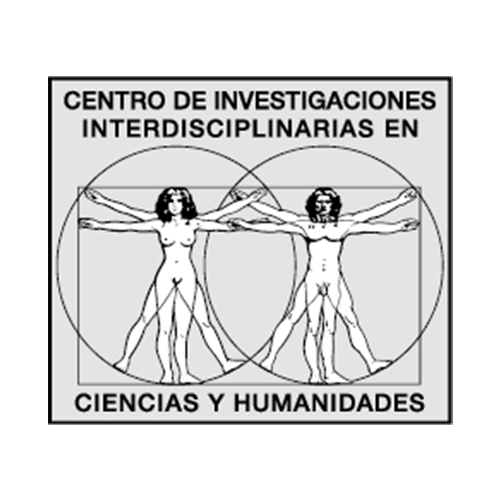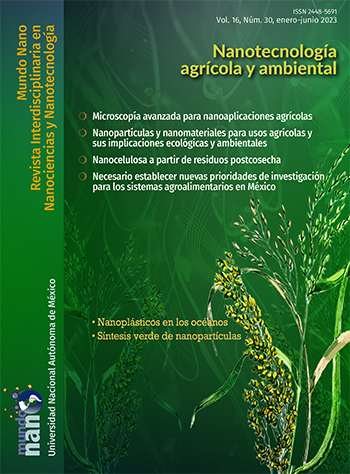Trends in periodontal regeneration with the use of nanoparticles: a systematic review of the literature
Main Article Content
Abstract
To carry out a systematic review of the literature to identify the types of nanoparticles and the effect they have on periodontal regeneration, a systematic review of the literature was carried out in the ScienceDirect, PubMed and SciELO databases. As inclusion criteria, the full-text original articles that included the use of nanoparticles (0-100 nm) for periodontal regeneration purposes published between 2016 and 2022 were taken into account. The search terms were “Periodontal regeneration AND nanoparticles AND dental materials”. 13 articles that met the inclusion and exclusion criteria were obtained and analyzed. nHA was found to have a high regenerative effect, followed by TiO2NPs, gold, calcium phosphate, chitosan, and iron oxide, among others. These NPs showed a periodontal regeneration effect for one to four weeks, mainly promoting osteoinduction, cytocompatibility, cell adherence, degradability, analgesia and biomineralization properties. Nanotechnology in the dental field is emerging as an attractive platform for advanced therapy in conjunction with dental biomaterials. In this review, it was found that nHA and TiO2NPs showed the best cellular response and in the shortest time to obtain regenerative results in periodontics in comparison to other NPs. There are still very few NPs analyzed for periodontal regeneration purposes, so their study is an emerging area. It is essential to recognize the possible limitations, consequences and adverse effects in short and long term, which must be studied in greater depth.
Downloads
Article Details

Mundo Nano. Revista Interdisciplinaria en Nanociencias y Nanotecnología por Universidad Nacional Autónoma de México se distribuye bajo una Licencia Creative Commons Atribución-NoComercial 4.0 Internacional.
Basada en una obra en http://www.mundonano.unam.mx.
References
Abdelaziz, D., Hefnawy, A., Al-Wakeel, E., El-Fallal, A. y El-Sherbiny, I. M. (2020). New biodegradable nanoparticles-in-nanofibers based membranes for guided periodontal tissue and bone regeneration with enhanced antibacterial activity. J Adv Res, S2090-1232(20): 30123-5. https://doi.org/10.1016/j.jare.
Acevedo, C., Olguín, Y., Briceño, M., Forero, J., Osses, N., Díaz-Calderón, P., Jaques, A., Ortiz, R. (2019). Design of a biodegradable UV-irradiated gelatin-chitosan/ nanocomposed membrane with osteogenic ability for application in bone regeneration. Materials Science & Engineering C, 99: 875-886. https://doi.org/10.1016/j.msec.2019.01.135. DOI: https://doi.org/10.1016/j.msec.2019.01.135
Castillo, G., Castillo, R., Terriza, A., Saffar, J., Batista, A., Lynch, C., Sloan, A., Gutié- rrez, J. y Torres, D. (2016). Pre-prosthetic use of poly (lactic-co-glycolic acid) membranes treated with oxygen plasma and TiO2 nanocomposite particles for guided bone regeneration processes. Journal of Dentistry, 47: 71-79. https://doi.org/10.1016/j.jdent.2016.01.015. DOI: https://doi.org/10.1016/j.jdent.2016.01.015
Dehnavia, S., Mehdikhanib, M., Rafieniac, M., Bonakdar, S. (2018). Preparation and in vitro evaluation of polycaprolactone/PEG/bioactive glass nanopowders nanocomposite membranes for GTR/GBR applications. Materials Science & Engineering C, 90: 236-247. https://doi.org/10.1016/j.msec.2018.04.065. DOI: https://doi.org/10.1016/j.msec.2018.04.065
Dumont, V., Mansur, H., Mansur, A., Carvalho, S., Capanema, N. y Barrioni, B. (2016). Glycol chitosan/nanohydroxyapatite biocomposites for potential bone tissue engineering and regenerative medicine. International Journal of Biological Macromolecules, 93: 1465-1478. https://doi.org/10.1016/j.ijbiomac.2016.04.030Get. DOI: https://doi.org/10.1016/j.ijbiomac.2016.04.030
Fahimipour, F., Bastami, F., Khoshzaban, A., Jahangir, S., Baghaban, M., Khayyatan, F., Safiaghdam, H., Sadooghi, Y., Safa, M., Jafarzadeh. T., Dashtimoghadam, E. y Tayebi, L. (2020). Critical-sized bone defects regeneration using a bone-inspired 3D bilayer collagen membrane in combination with leukocyte and platelet-rich fibrin membrane (L-PRF): An in vivo study. Tissue and CelL, 63: 101326. https://doi.org/10.1016/j.tice.2019.101326. DOI: https://doi.org/10.1016/j.tice.2019.101326
Huang, K., Chen, Y., Wang, C., Lin, Y., Wu, A., Shie, M., PhD, Lin, C. (2018). Enhanced capability of bone morphogenetic protein 2–loaded mesoporous calcium silicate scaffolds to induce odontogenic differentiation of human dental pulp cells. Regenerative endodontics, 44(11): 1677-1685. https://doi.org/10.1016/j.joen.2018.08.008. DOI: https://doi.org/10.1016/j.joen.2018.08.008
Ikono, R., Lid, N., Pratamaa, N., Vibrianie, V., Yuniarnif, D., Luthfansyaha, M., Bachtiarg, B., Bachtiarg, E., Muliah, K., Nasikinh, M., Kagamic, H., Lid, X., Mardliyatii, E., Rochmanj, N., Inouel, T., Tojo A. (2019). Enhanced bone regeneration capability of chitosan sponge coated with TiO2 nanoparticles. Biotechnology Reports, 24: e00350. https://doi.org/10.1016/j.btre.2019.e00350. DOI: https://doi.org/10.1016/j.btre.2019.e00350
Lang, K. (2006). Periodontología clínica e implantología odontológica, 4a ed. Argentina: Panamericana.
Lee D, Jin S., Moon, J., Hyoung, J., Nyoung, D., Beum, Nam Lim, H., Keun, I. (2018). Preparation of antibacterial chitosan membranes containing silver nanoparticles for dental barrier membrane applications. Journal of Industrial and Engineering Chemistry, 66: 196-202. https://doi.org/10.1016/j.jiec.2018.05.030. DOI: https://doi.org/10.1016/j.jiec.2018.05.030
Liaoa, S., Wanga, W., Uoa, M., Ohkawaa, S., Akasakaa T., Tamuraa, K., Cuib, F. y Wataria, F. (2005) A three-layered nano-carbonated hydroxyapatite/collagen/PLGA composite membrane for guided tissue regeneration. Biomaterials, 26: 7564-757. https://doi.org/10.1016/j.biomaterials.2005.05.050. DOI: https://doi.org/10.1016/j.biomaterials.2005.05.050
Lindhe J., y Lang J. (2015). Clinical periodontology and implant dentistry, vol. 2. EUA: John Wiley & Sons, Incorporated.
Masoudi, M., Nouri, S., Ghasemi, L., Prabhakaran, M., Reza, M., Kharaziha, M., Saadatkish, N. y Ramakrishna, S. (2017). Fabrication and characterization of two-layered nanofibrous membrane for guided bone and tissue regeneration application. Materials Science and Engineering, 80: 75-87. https://doi.org/10.1016/j.msec.2017.05.125.
Niklaus, P. Lang et al. (eds.) (2015). Clinical periodontology and implant dentistry, 2 vols. John Wiley & Sons, Incorporated.
Rad, M., Khorasani, S., Mobarakeh, L., Prabhakaran, M., Foroughi, M., Kharaziha, M., Saadatkish, N. y Ramakrishna S. (2017). Fabrication and characterization of two-layered nanofibrous membrane for guided bone and tissue regeneration application. Materials Science and Engineering, 80: 75-87. https://doi.org/10.1016/j.msec.2017.05.125. DOI: https://doi.org/10.1016/j.msec.2017.05.125
Ren, Shuangshuang, Zhou, Y., Zheng, Kai, Xu, Xuanwen, Jie, Yang, Xiaoyu, Wang, Miao, Leiying, Wei, Hui, Xu, Yan. (2021). Cerium oxide nanoparticles loaded nanofibrous membranes promote bone regeneration for periodontal tissue engineering. Bioactive Materials, 2452. https://doi.org/10.1016/j.bioactmat.2021.05.037. DOI: https://doi.org/10.1016/j.bioactmat.2021.05.037
Sánchez, Javier, Gaytan, César, Aguilera, Luis, Frausto, Silverio, Cepeda, Oscar. (2020). Implicaciones médico dentales de la nanotecnología y su toxicidad. Contexto odontologico,10: 13-19. https://doi.org/10.48775/rco.v10i19.944.
Sculean, A., Nikolidakis, D., Nikou, G., Ivanovic, A., Chapple, J. y Tavropoulos A. (2015). Biomaterials for promoting periodontal regeneration in human intrabony defects: a systematic review. Periodontology 2000, 68: 182-216. https://doi.org/10.1111/prd.12086. DOI: https://doi.org/10.1111/prd.12086
Sigmund, S., Haffajee, A. (2006). Ecología microbiotal periodontal. Periodontology 2000, 12: 135-187.
Takahashi, C., Hattori, Y., Yagi, S., Murai, T., Tanemurae, M., Kawashima, Y. y Yamamotoa, H. (2019). Ionic liquid-incorporated polymeric nanoparticles as carriers for prevention and at an earlier stage of periodontal disease. Materialia, 8: 100395. https://doi.org/10.1016/j.mtla.2019.100395. DOI: https://doi.org/10.1016/j.mtla.2019.100395
Tenkumo, T., Vanegas, J., Nakamura, K., Shimuzu, K., Sokolova, V., Epple, M., Kamano, Y., Egusa, H., Sugaya, T., Sasaki, T.(2018). Prolonged release of bone morphogenetic protein-2 in vivo by gene transfection with DNA-functionalized calcium phosphate nanoparticle-loaded collagen scaffolds. Materials Science & Engineering C, 92: 172-183. https://doi.org/10.1016/j.msec.2018.06.047. DOI: https://doi.org/10.1016/j.msec.2018.06.047
Türkkan, S., Engin, A., Keskin, D., Machin, N., Duygulu, O. y Tezcaner, A. (2017). Nanosized CaP-silk fibroin-PCL-PEG-PCL/PCL based bilayer membranes for guided bone regeneration. Materials Science & Engineering C, 80: 484-493. https://doi.org/10.1016/j.msec.2017.06.016. DOI: https://doi.org/10.1016/j.msec.2017.06.016
Wang, M. y Wang, L. (2020). Plant polyphenols mediated synthesis of gold nanoparticles for pain management in nursing care for dental tissue implantation applications. J Drug Deliv Sci Technol, 58: 101753. https://doi.org/10.1016/j.jddst.2020.101753. DOI: https://doi.org/10.1016/j.jddst.2020.101753
Xia, Y., Guoa, Y., Yanga, Z., Chena, H., Rend, K., Hael, W., Laurence, W., Reynoldsc, A., Zhanga, F. y Xu, H. (2019). Iron oxide nanoparticle-calcium phosphate cement enhanced the osteogenic activities of stem cells through WNT/β-catenin signaling. Materials Science & Engineering C, 104: 109955. https://doi.org/10.1016/j.msec.2019.109955. DOI: https://doi.org/10.1016/j.msec.2019.109955





